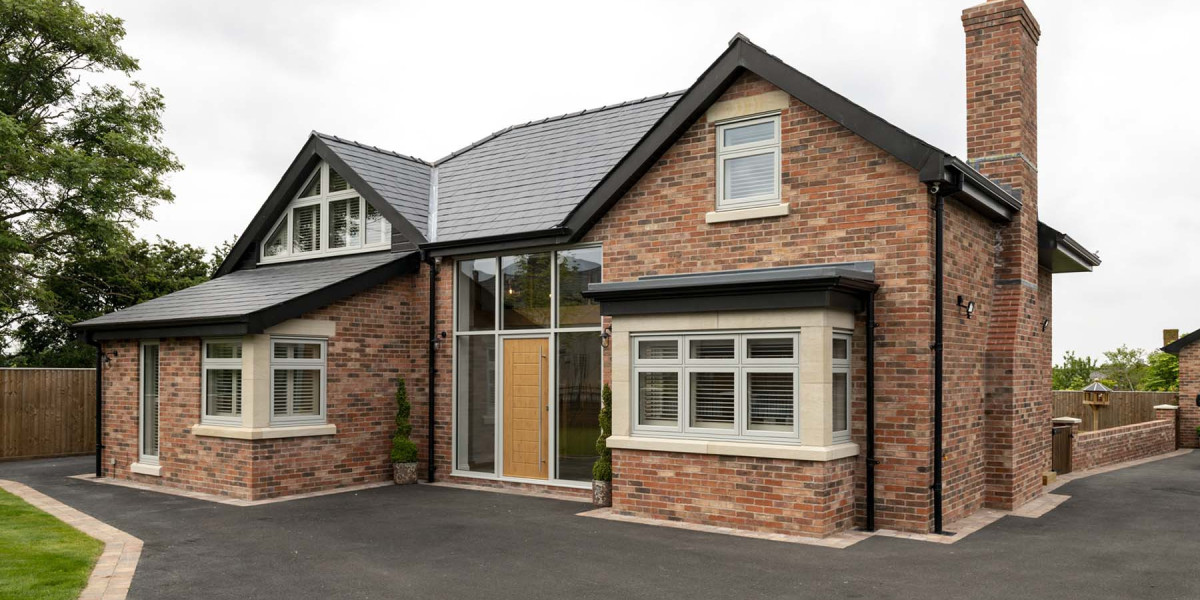
Estate agents in the UK offer leasehold land and freehold land. Do you understand what the difference is? If you're seeking to buy a piece of land it's important you comprehend on what basis you're purchasing, as it can affect your rights in all sorts of ways.

In this guide, we'll be concentrating on leasehold land. We'll explore what it is and whether it may be the right choice for you.

What do we suggest by the term leasehold land?

In the case of leasehold land much like domestic leases, the purchaser does not become the straight-out owner. Instead, the purchaser buys special permission to utilize the land for a time period. A piece of land's ownership history, along with its existing period (i.e. freehold ownership vs leasehold ownership), are all consisted of in its title deeds, a copy of which is usually held by HM Land Registry.
Leasehold ownership lengths can differ hugely. Some lease lengths might be for a 50-year duration, a 90-year duration and even a 999-year duration, depending upon the original lease and when it was prepared. When the time limit on the lease comes to an end, it can normally be extended, however this might incur legal costs.
There are pros and cons to the purchase of leasehold land. In specific scenarios, such as the development of cost effective housing in inner cities with high residential or commercial property costs, it can be of fantastic advantage.
Where did the idea of leasehold land come from?
The concept of owning land and leasing it to others is not a brand-new one. It can be seen in the history books as far back as the Norman conquest, although it would have looked extremely different to how it does today.
The leasehold land design as we understand it dates back to when the 'landed gentry' owned huge swathes of land or large country estates, providing long-term lease arrangements to those wishing to farm or reside on the land. In the UK a few of the greatest landowners were (and still are) The Crown and the Church, with numerous long leases sold to allow the building of both business residential or commercial properties and houses.
Large landowners would approve long leases to developers permitting them to develop and either offer or earn rental income from the land. Those landowners would then share in the income source that was ultimately received from any structures put up. Still to this day, areas of London, consisting of Regent Street and the areas around many of the royal parks, are developed on leasehold land owned by The Crown.
It's just been considering that the Second World War, when local authorities were wanting to help restore their cities and neighborhoods and develop budget-friendly housing in a difficult economic duration, that this leasehold land design started to make sense.
It allows much-needed inexpensive housing developments to be financed and constructed without the crippling up-front expenses associated with land purchase. And what's more, it sees a steady stream of income returning into the public coffers over the longer term.
Is leasing land a great concept?
As the freeholder, the owner of the land will require to pay the costs of acquiring the land. This could be a large amount. If you do not have offered capital to invest, renting can be an excellent path to gaining the right to utilize the land for whatever you wish at a portion of the initial cost.
Leasehold land offers more security than you might believe. For the most part, a leasehold agreement provides the exact same level of security as a freehold. The agreement you sign to buy the lease will state the particular duration of time for which the land is leased to you. During this period, no one can remove the land from you for any reason.

If you build a home on the land you will have the exact same rights over it as you would were the land freehold. You will be able to refurbish, extend or change it, sell it or rent it out without first looking for approval from the landowner. What's more, if you pass away, the ground lease can be handed down by means of your will.
You will be able to utilize your parcel however you want, depending upon the regards to the lease and subject to regional planning authorization. Most agreements will allow you to erect a home, business residential or commercial properties, develop something for the good of the neighborhood, or work from the land as you need to.
Once the lease period is over, you need to can renew your arrangement, via a lease extension, and continue with the arrangement you had. And it will continue to be the task of the owner to preserve the land that he has leased, covering upkeep expenses, service fee, administration charges and so on.
And meeting the purchase cost should not be a concern, there are numerous mortgage lending institutions that will be happy to help you finance the purchase as long as the lease term staying is sufficient.
Who does leasehold suit?
Leasing land works especially well in some circumstances. If, for example, a landowner wants to retain ownership of a bundle of land but not develop it themselves, they could get in into a land lease agreement with a developer. This would put the onus on the designer to construct and offer several homes, while the freeholder retains ownership of the land.
In this case, the residential or commercial property owner would enjoy a stable earnings stream from ground lease charges and other maintenance costs.
Due to the expense and length of time it takes before a return on investment is seen, it can be particularly hard for smaller private designers to get great plots of land to develop on, especially in more costly locations such as central cities.
If developers who aren't cash-rich discover it challenging to secure finance to money the up-front purchase of a piece of land, the opportunity to rent and repay throughout time, finally passing those continuous expenses to buyers, is an appealing one.
The leasehold model offers the opportunity for councils, charities, housing cooperatives and Community Land Trusts (CLTs) - a type of neighborhood ownership - to come together and help people on lower incomes to build their own homes. All by reducing or eliminating the requirement to find the up-front capital to acquire land.
Are there any downsides?
While you might discover it useful to prevent the high expense of purchase at first, paying yearly ground rent charges can also hurt in the long run. These charges are liable to increase in line with the regional market rate for land, and you might have little control over the boost.
When you acquire leasehold land in the very first place it is necessary to check how long is remaining on the lease. Extensions not just need sensible time and effort, however they are likely to incur legal charges.

What's more, there is a danger your extension demand might be denied. The landowner might not wish to extend the lease, maybe choosing to establish the land or use it personally in some way. If you have actually invested cash to make the land fit for function this could be difficult.
As a leaseholder rather than a freeholder you will not have overall control of what you can do with or on the land. Be sure to examine what you are and aren't permitted to do according to the terms of your lease.
Feel confident, a lot of these risks can be alleviated by doing your research and looking for skilled legal guidance upfront.
What happens at the end of a lease?
At the end of a lease, where no extension has actually been concurred, the landowner will can seize the land and whatever that has actually been developed on it. Ownership is lawfully moved. Use Addland's guide on how to find who owns land to find the very best way for you to research land ownership.
Interestingly in many places in Europe - where leasehold is a popular technique for councils to own and lease out land and residential or commercial property - this right of foreclosure does not exist in the very same method. If the lease is not to be extended, the council will generally accept pay the outbound leaseholder the residential or commercial property evaluation of any structure that has actually been constructed on the land.
Is leasehold the ideal model for you? Addland can help you discover leasehold land for sale In the UK, conserving you time by providing you all the details you require in one place. And with information from HM Land Registry and Ordnance Survey, covering factors to consider from flood zones to AONBs, we can assist you build a total photo of the land you're seeking to purchase.
Addland makes it easy to Find, Research, Buy or Sell land. Start your land journey today.








